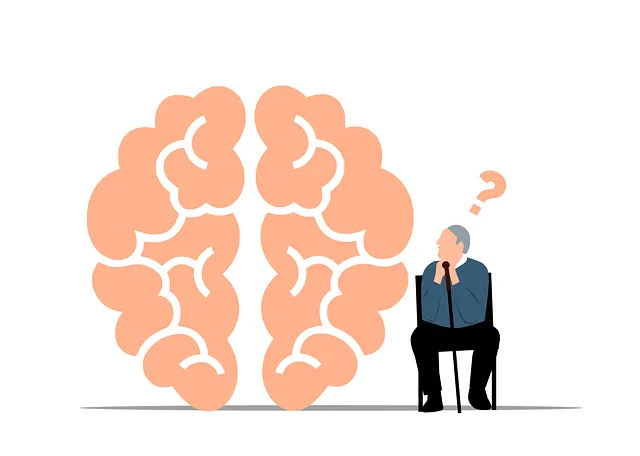The Kaiser Permanente mental health department in Boulder offers a proven RFM framework (Resilience, Flexibility, Mindfulness) for building mental well-being. Through communication strategies, mindfulness meditation and 'mind over matter' principles, individuals gain enhanced coping mechanisms, overcome challenges, and feel empowered. Accessible services include personalized support groups and education, open to anyone seeking guidance in maintaining or improving their mental health. Contact the Kaiser Permanente mental health department phone number Boulder for more information on resilience-building exercises and holistic wellness coaching programs.
“Resilience is a powerful tool in navigating life’s challenges, and the RFM (Recovery, Flexibility, Mastery) framework offers a structured approach to building this vital skill. This article explores how the Kaiser Permanente Mental Health Department in Boulder plays a crucial role in promoting resilience through innovative phone support services. We’ll delve into various exercises designed to enhance flexibility and mastery, providing practical tips on integrating RFM into daily life. Discover how these strategies can empower individuals, especially those seeking support from the dedicated professionals at Kaiser Permanente Boulder.”
- Understanding RFM: A Framework for Resilience
- The Role of the Kaiser Permanente Mental Health Department in Boulder
- Phone Support Services for Building Resilience
- Types of Resilience-Building Exercises
- Integrating RFM into Daily Life: Practical Tips
Understanding RFM: A Framework for Resilience

Resilience is a crucial aspect of mental well-being, enabling individuals to navigate life’s challenges with strength and adaptability. The RFM framework, developed by experts in the Kaiser Permanente mental health department in Boulder, offers a structured approach to building this vital skill. RFM stands for Resilience, Flexibility, and Mastery, three interconnected components that form the backbone of a robust resilience-building strategy.
This innovative model encourages individuals to foster effective communication strategies, practice mindfulness meditation techniques, and embrace the mind over matter principles. By integrating these tools, people can enhance their ability to cope with stress, overcome obstacles, and cultivate a sense of empowerment. The RFM framework is designed to be accessible and practical, providing individuals with the mental tools needed to thrive in today’s demanding world.
The Role of the Kaiser Permanente Mental Health Department in Boulder

The Kaiser Permanente Mental Health Department in Boulder plays a pivotal role in fostering mental wellness within the community. This department offers a comprehensive range of services designed to support individuals dealing with various mental health challenges, including depression prevention and stress reduction methods. Their team of skilled professionals provides counseling, therapy, and support groups tailored to meet the unique needs of each patient.
With a focus on building resilience, the Mental Health Department delivers specialized programs that empower individuals to navigate life’s difficulties. They promote mental wellness by educating the community about various strategies to manage stress, improve mood, and enhance overall well-being. Accessible through the Kaiser Permanente mental health department phone number Boulder, these services are a valuable resource for anyone seeking support in maintaining or improving their mental health.
Phone Support Services for Building Resilience

Phone support services play a crucial role in building resilience, especially in today’s challenging times. Organizations like Kaiser Permanente recognize this need and offer their mental health department phone number in Boulder as a valuable resource for individuals seeking guidance and support. This service provides a safe space to discuss concerns, learn coping mechanisms, and develop strategies to enhance mental wellness. Trained professionals equipped with empathy building strategies and cultural competency training are available to assist callers, ensuring they receive tailored assistance that respects their unique backgrounds and experiences.
The phone support extends beyond immediate crisis intervention; it encourages proactive mental health management. Through regular conversations, individuals can explore various resilience-building exercises and gain insights into effective self-care practices. Moreover, these sessions contribute to the development of mental wellness coaching programs, fostering a holistic approach to well-being that goes beyond traditional therapy models.
Types of Resilience-Building Exercises

Resilience-building exercises play a pivotal role in fostering mental fortitude and coping mechanisms. The Kaiser Permanente mental health department in Boulder offers a range of tailored strategies to enhance resilience, catering to diverse needs. One such approach is Risk Assessment for Mental Health Professionals, which helps individuals identify personal vulnerabilities and develop personalized plans to mitigate potential risks.
Additionally, Empathy Building Strategies are integral to these exercises, promoting understanding and connection. Social Skills Training is another valuable component, empowering individuals with the tools to navigate social interactions effectively. These comprehensive programs aim to strengthen mental health, ensuring individuals can better manage challenges and thrive in various settings.
Integrating RFM into Daily Life: Practical Tips

Integrating RFM (Resilience, Flexibility, and Mindfulness) into your daily routine can significantly enhance your mental wellness, as demonstrated by the Kaiser Permanente mental health department in Boulder. Here are some practical tips to get started:
1. Mindfulness Moments: Dedicate just 5-10 minutes each day for mindfulness exercises like deep breathing, meditation, or mindful walking. These practices help cultivate present-moment awareness and regulate your mood management, serving as effective stress reduction methods.
2. Flexible Routines: Embrace flexibility in your daily schedule. Unexpected events can disrupt our plans, but a adaptable mindset allows you to navigate these changes with resilience. Prioritize self-care during such times, using it as an opportunity to explore new stress reduction techniques or engage in activities that promote mental wellness.
3. Reflective Journaling: Keep a journal to reflect on your day, noting challenging moments and how you responded. This practice fosters self-awareness, helping you identify patterns and develop more effective coping mechanisms for future situations.
Resilience is a vital asset in navigating life’s challenges, and the Kaiser Permanente Mental Health Department in Boulder plays a crucial role in empowering individuals to build this strength. By offering phone support services and diverse resilience-building exercises, they provide accessible resources for everyone. Incorporating practices like mindfulness, stress management, and social connection into daily routines can significantly enhance one’s ability to cope with adversity. For those seeking guidance, reaching out to the Kaiser Permanente mental health department in Boulder via their phone number is a step towards prioritizing mental well-being and fostering resilience.






